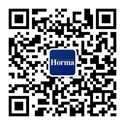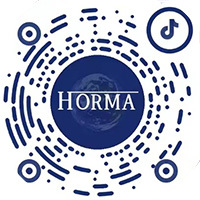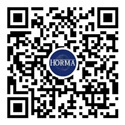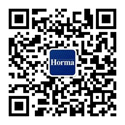ZSM Manual Machine
Classification:
All work steps of the ZSM are carried out manually. This means you are very flexible and can adapt the procedure and speed precisely to the workpiece.
Relative accessories
Consulting Service E-mail:info@horma.cn
Submit RequirementsProduct Introduction
Advantages:
● High roundness and concentricity of the center hole of 0.001mm
● Restore the axis of deformed workpieces
● Establish coaxiality, for example between a finished bearing seat and the center hole
● Minimisation of the cylindrical grinding time thanks to smaller grinding allowance
● Achieve higher efficiency, greater accuracy and lower reject rate during following processes
● Increase process reliability and capability for series production
Advantages when using our precision chuck:
● IGrind the center hole coaxially to a bore, although the workpiece is clamped on the deformed and out-of round outside diameter.(With the precision chuck, the workpiece can be aligned for example according to a bore)
● IIntentional displacement of the axis (if required by the workpiece)
Application examples
1. Roundness
Achieving high roundness andConcentricity in the center hole
2.Surface finish
Achieving the optimal surface for cylindrical grindingbetween the centers (cross grinding pattern)
3. Non-circular parts
Align out-of-round parts with the chuck, so thatthe grinding allowance can be minimized
4. Offsetting the axis
Aligning the parts according to the hole and grindingthe center eccentrically to the outside diameter
5.Positioning errors
Correcting position errors of two centers
6. Align axis
Restore the axis of two centers relativeto the outside diameter
7. Center angle
Restore the desired center angle
Grinding the center holes on the center holegrinding machine brings essential advantages.
Center hole grinding corrects shape and positionerrors. This allows hardening depths andgrinding allowances to be minimized, and theworkpiece has the perfect starting position forall further processing steps.
Parts- and customer spectrum
Some examples of typical parts that are ground on the center hole grinding machine:
Our center hole grinding machines are used in the following industrial sectors:
● Spindle manufacturing
● Mechanical engineering (grinding machines, machine tools, etc.)
● Automotive industry
● Engine manufacturing
● Aviation industry
● Gear manufacturing
● Wind power
● Gripping and clamping technology
● Hydraulics
● Parts manufacturing (ball screws, etc.)
● Tool manufacturing (solid carbide tools, etc.)
● Tool holders
● and many more
Functionality of ZAMAG center hole grinding machines
All ZAMAG center hole grinding machines work with a rotating workpiece. This has many advantages. Parts withpre-ground or already finished bearing seats can be easilv clamped in the steady rest. This clamping method ensuresthat the center holes are automatically ground coaxially to the bearing seat. However, this requires that the bearingseats have a good roundness, as this is adopted in the ground center hole.
There are even more advantages when clamping and grinding the rotating workpiece in our precision chuck: Theparts can be aligned precisely using the three adiustable sleeves in the chuck, This means that it is no problem toclamp even raw or out-of-round workpieces, By aligning the outer diameter, the center is ground coaxially to theaxis. This means that the grinding allowance can be kept to a minimum.
It is also possible to clamp the part at the outside diameter, but to align it according to the bore, This means thatthe part is intentionally clamped eccentrically. This procedure is used if the outside diameter is later to be groundon the cylindrical grinding machine coaxially to a lfor example honed) bore.
Grinding principle:
1. Rotating movement of the grinding wheel
2. Stroke movement of the grinding wheel
3. Rotating workpiece
Result:
A cross-grinding pattern with oil pockets,in which the oil film is retained duringcylindrical grinding between the centers
Types of different ZAMAG center hole grinding machines
The main difference between our machines is the clamping method. For pre-ground parts, a machine with a steadyrest (Lv) and driven counter tip (AS) is used. For raw, out-of-round parts, a machine with a drive unit (AA), precisionchuck (SP) and fixed counter tip (FS) is used.
Characteristics of the clamping variants
Characteristics of the precision chuck:
The drive unit AA serves as the drive for the workpieces. The precision chuck Sp is screwed onto the AA. Theworkpieces are clamped and aligned using the chuck, The fixed tip FS serves as the counter tip.
● Rotating chuck = rotating workpiece
● The parts can be clamped on a rough diameterwith an out-of-round clamping diameter
● The parts can be aligned using the three individuallyadjustable quills on the chuck
● The parts must be inserted into the chuck from above or below
Characteristics of the steady rest:
The parts are clamped in the steady rest LN so that they can still rotate. The drive tip As serves as the counter tipthe and at the same time as the drive for the workpieces. The parts are placed on the drive counter tip - fitted witha lathe dog.
● Standing steady rest, workpiece is driven bythe drive counter tip
● In order to achieve good concentricity in the center,the clamping areas of the workpieces must havegood concentricity (pre-ground)
● The concentricity of the center is only as accurate asthe concentricity of the clamping diameterVery simple and quick clamping of the parts(do not need to be aligned)
● Since the steady rest can be opened, the partsare placed in the steady rest from the front
Previous
Next
Previous
Next
Inquiry






